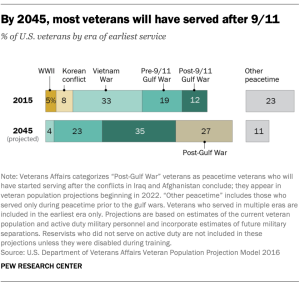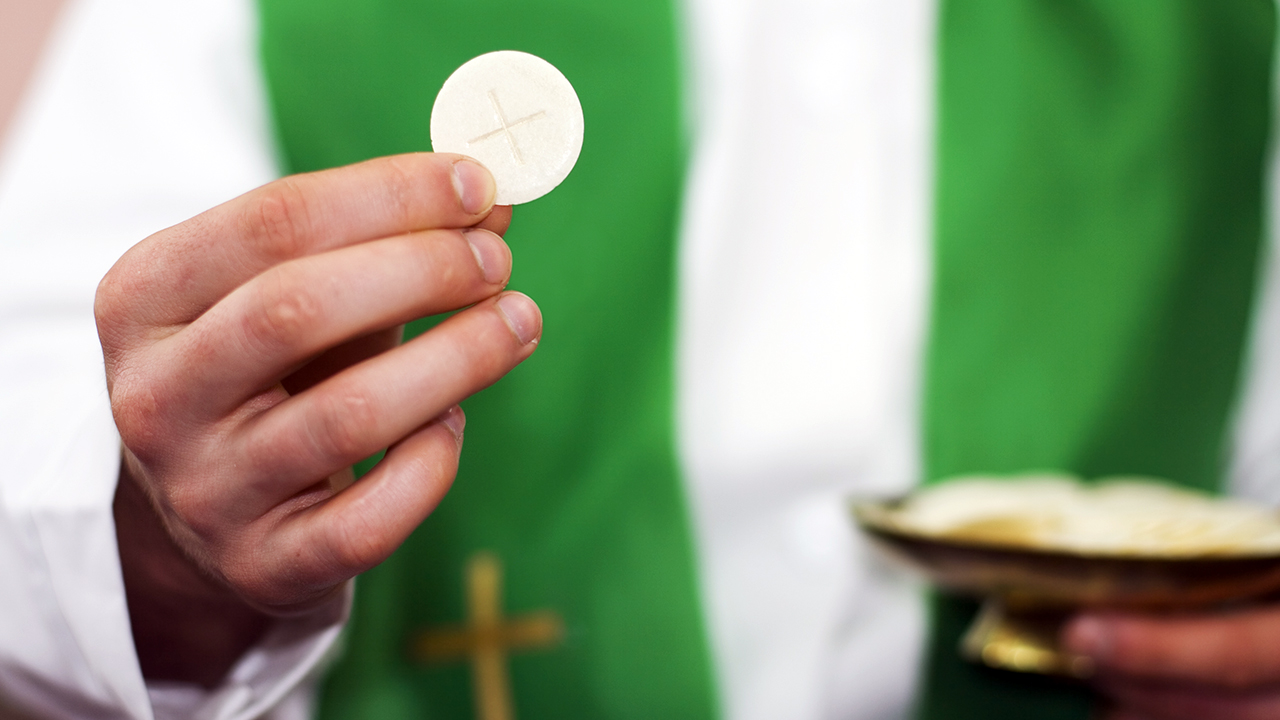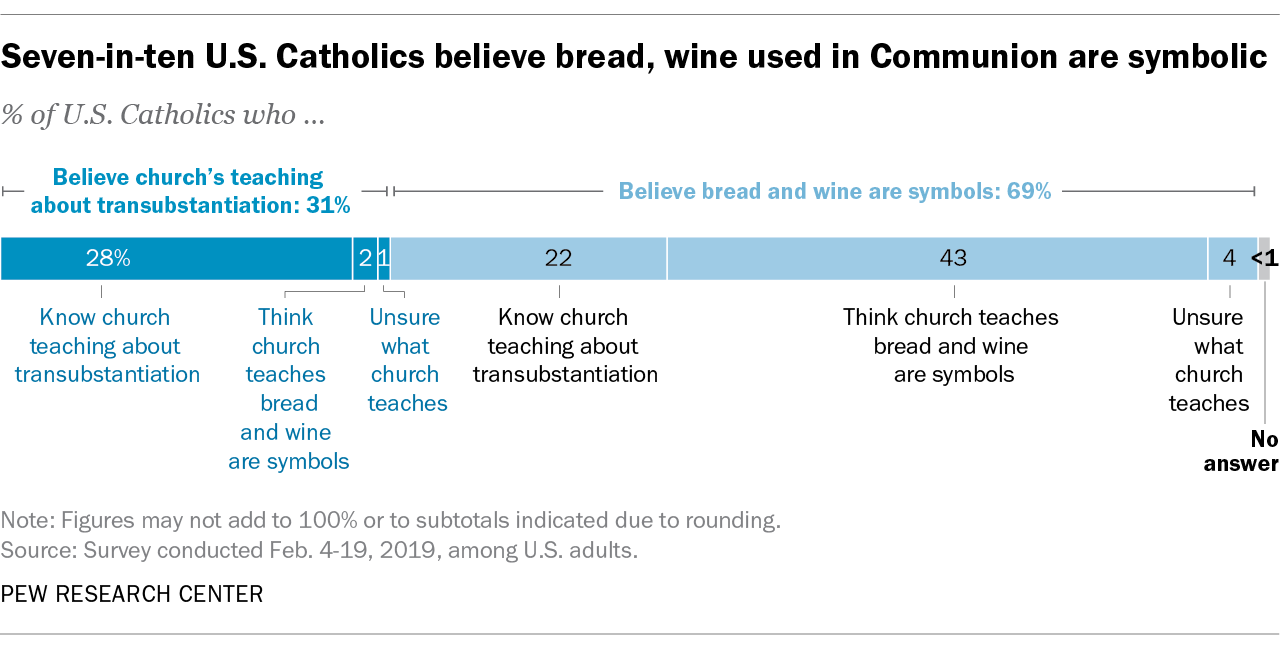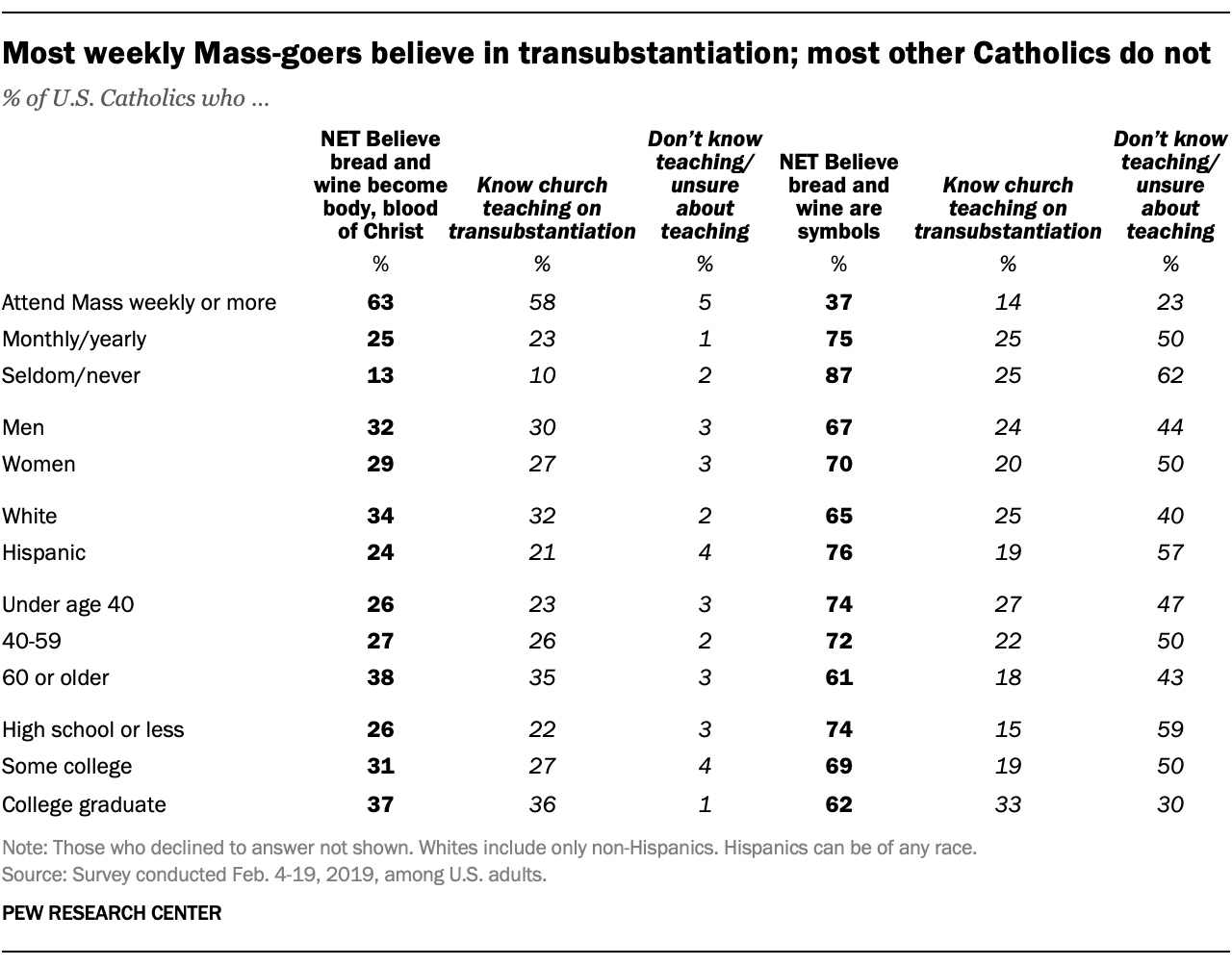

Transubstantiation – the idea that during Mass, the bread and wine used for Communion become the body and blood of Jesus Christ – is central to the Catholic faith. Indeed, the Catholic Church teaches that “the Eucharist is ‘the source and summit of the Christian life.’”
But a new Pew Research Center survey finds that most self-described Catholics don’t believe this core teaching. In fact, nearly seven-in-ten Catholics (69%) say they personally believe that during Catholic Mass, the bread and wine used in Communion “are symbols of the body and blood of Jesus Christ.” Just one-third of U.S. Catholics (31%) say they believe that “during Catholic Mass, the bread and wine actually become the body and blood of Jesus.”

In addition to asking Catholics what they believe about the Eucharist, the new survey also included a question that tested whether Catholics know what the church teaches on the subject. Most Catholics who believe that the bread and wine are symbolic do not know that the church holds that transubstantiation occurs. Overall, 43% of Catholics believe that the bread and wine are symbolic and also that this reflects the position of the church. Still, one-in-five Catholics (22%) reject the idea of transubstantiation, even though they know about the church’s teaching.
The vast majority of those who believe that the bread and wine actually become the body and blood of Christ – 28% of all Catholics – do know that this is what the church teaches. A small share of Catholics (3%) profess to believe in the real presence of Christ in the Eucharist despite not knowing the church’s teaching on transubstantiation.
About six-in-ten (63%) of the most observant Catholics — those who attend Mass at least once a week — accept the church’s teaching about transubstantiation. Still, even among this most observant group of Catholics, roughly one-third (37%) don’t believe that the Communion bread and wine actually become the body and blood of Christ (including 23% who don’t know the church’s teaching and 14% who know the church’s teaching but don’t believe it). And among Catholics who do not attend Mass weekly, large majorities say they believe the bread and wine are symbolic and do not actually become the body and blood of Jesus.

The survey also finds that belief in the real presence of Christ in the Eucharist is most common among older Catholics, though majorities in every age group (including 61% of those age 60 and over) believe that the bread and wine are symbols, not the actual body and blood of Christ.
Note: See full topline results and methodology.
